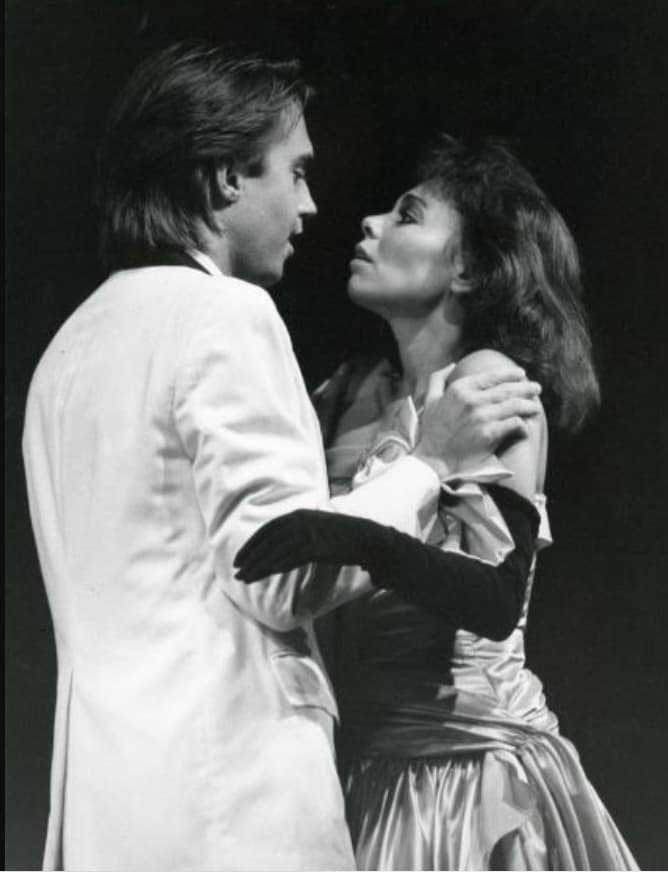
A reflective ballad about seeking profound, altruistic connection and personal meaning beyond superficial struggles.
For those of us who came of age amidst the swirling posters and screaming crowds of the late 1970s, the name Shaun Cassidy evokes a very specific, sun-drenched memory. He was the quintessential teen idol, a handsome young man born into Hollywood royalty—son of Academy Award-winning actress Shirley Jones and actor Jack Cassidy, and half-brother to another reigning heartthrob, David Cassidy. Shaun’s initial success was stratospheric, propelled by his role as Joe Hardy on the popular television show The Hardy Boys/Nancy Drew Mysteries and a string of infectious, bubblegum pop hits like “Da Doo Ron Ron” and “That’s Rock ‘n’ Roll.” He was everywhere, selling out arenas and gracing the covers of countless teen magazines. But like the ephemeral nature of all teen fandom, the tide inevitably began to turn.
“Selfless Love”, a deep cut from Shaun Cassidy’s fifth and final studio album, Wasp (1980), represents a pivotal, almost elegiac moment in his musical career. Critically, and perhaps more importantly for the older audience who vividly recall his earlier ubiquity, this song arrived at a time when the commercial fervor for Cassidy was dramatically cooling. Wasp itself did not chart on the Billboard 200, a stark contrast to his earlier albums like Shaun Cassidy (1977) and Born Late (1977), which both achieved Platinum status. Consequently, the single “Selfless Love” did not achieve a significant position on the major music charts, lacking the commercial resonance of his earlier smashes. This lack of chart success, however, is precisely what lends the song its profound, retrospective weight; it marks the sound of an artist determined to grow up in public, even as his massive teen audience moved on.
The story behind the sound of Wasp—and by extension, the reflective tone of “Selfless Love”—is one of an artist’s earnest attempt at reinvention. Seeking to shed the restrictive ‘teen idol’ image and transition into a more serious, new-wave/rock persona, Cassidy enlisted the legendary musician and producer Todd Rundgren and his band, Utopia, to shepherd the album. Rundgren, a noted musical intellectual, penned “Selfless Love” for Cassidy. This collaboration resulted in a sophisticated, synth-heavy, new-wave sound that was a dramatic departure from the joyous, raw-power-pop of his first albums.
The song’s meaning, laid bare in Rundgren’s introspective lyrics, is a powerful contemplation of selfishness versus altruism and the search for authentic meaning in a cynical world. The verses present a series of theatrical, yet relatable, existential crises: the narrator seeks escape at the river, climbs a mountain for clarity, and cries out in the dirty city dawn, only to be met with humbling, almost biblical retorts. The river is too shallow for “suicide,” the “mountain” is merely a molehill, and the voice of the divine or conscience tells him to stop complaining and trust the plan. The repeated, core message—”Selfish love will just bring you pain / But selfless love is never in vain”—acts as the song’s anchor and its ultimate realization. It’s a beautifully simple moral: that true fulfillment comes not from self-pity or grand gestures, but from giving love without expectation.
For older readers, listening to “Selfless Love” today offers a rich vein of nostalgia. It’s the sound of a talented young man attempting to trade the bright spotlight of bubblegum pop for the deeper, more complex textures of genuine artistry—a familiar struggle for any artist constrained by early success. The new-wave sheen is a perfect time capsule of the early 1980s, evoking memories of leg warmers, synthesizer riffs, and the dawning realization that the simple innocence of the ’70s teen idol era was definitively over. It’s a song about maturity, both lyrically and sonically, and a testament to Shaun Cassidy’s attempt to forge a lasting career on his own terms before transitioning into a successful writer and producer behind the scenes. It’s a poignant farewell, delivered with an unexpected depth that remains unforgettable.